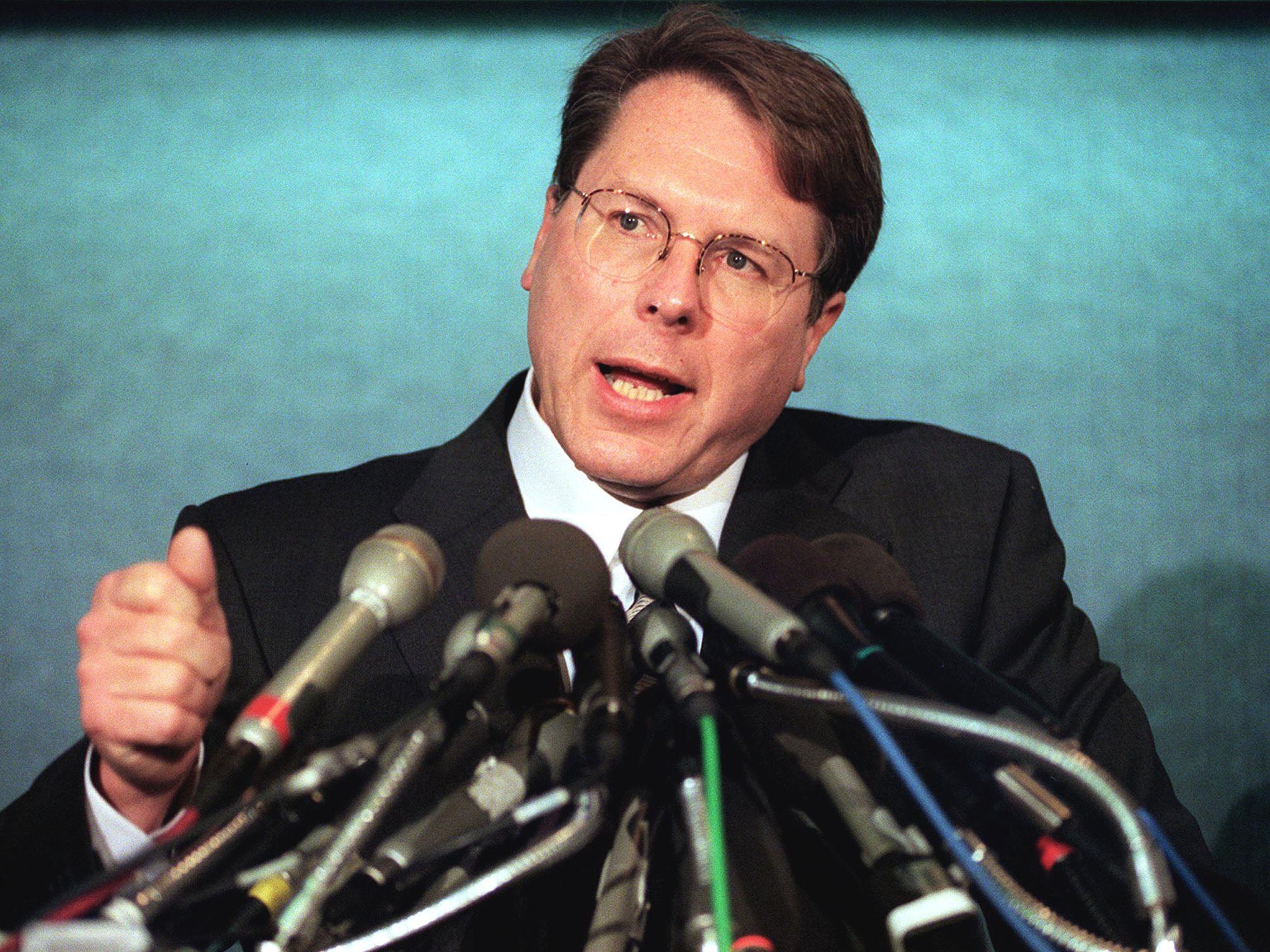NRA blames violent media for mass shootings

Your support helps us to tell the story
From reproductive rights to climate change to Big Tech, The Independent is on the ground when the story is developing. Whether it's investigating the financials of Elon Musk's pro-Trump PAC or producing our latest documentary, 'The A Word', which shines a light on the American women fighting for reproductive rights, we know how important it is to parse out the facts from the messaging.
At such a critical moment in US history, we need reporters on the ground. Your donation allows us to keep sending journalists to speak to both sides of the story.
The Independent is trusted by Americans across the entire political spectrum. And unlike many other quality news outlets, we choose not to lock Americans out of our reporting and analysis with paywalls. We believe quality journalism should be available to everyone, paid for by those who can afford it.
Your support makes all the difference.Blood. Gore. Intense violence.
These are three "content descriptors" shared by four video games cited by the head of the National Rifle Association as evidence that the American media as a whole — not individual ownership of assault weapons — encourages a culture of violence that occasionally manifests as mass shootings like the one in Newtown, Connecticut, on Dec. 14.
"There exists in this country a callous, corrupt and corrupting shadow industry that sells, and sows, violence against its own people — through vicious, violent video games with names like 'Bulletstorm,' 'Grand Theft Auto,' 'Mortal Kombat' and 'Splatterhouse,' " NRA Executive Vice President Wayne LaPierre said Friday in Washington at a morning news conference, the first public statement by the association since the massacre at Sandy Hook Elementary School.
All four video games do exhibit "blood and gore" and "intense violence," according to the Entertainment Software Rating Board, but many researchers are skeptical that there is a direct link between violent media and aggression in viewers. Violent-crime offenses decreased about 20 percent from 1998 to 2011, according to the FBI, while video game sales more than tripled, to $16.6 billion last year, according to the Entertainment Software Association.
"Bulletstorm," released last year by American gaming company Electronic Arts, is a first-person shooter game in which the player uses futuristic artillery to "perform over-the-top kills that dismember and decapitate foes," according to the rating board. In "Splatterhouse," released in 1988 by Japan-based Namco Bandai Games, players help a college student save his girlfriend from monsters by engaging them in "constant melee-style combat," the rating board said. "Bulletstorm" and "Splatterhouse" are low-selling games larded with sexual content and panned by critics, the video-game blog Kotaku reported.
"Mortal Kombat" and "Grand Theft Auto," on the other hand, are high-selling franchises that have been a consistent part of youth culture for decades, from movie adaptations to Halloween costumes to marathon tournaments with friends on lazy Saturdays. In "Mortal Kombat," a 20-year-old product of Warner Bros., players assume the guise of supernatural creatures and fight to the death in imaginary gladiatorial settings. "Grand Theft Auto," a grittier "open-world" action game released in 1997 by New York-based Rockstar Games, deposits players into seedy scenarios that require them to commit virtual crimes such as robbing banks, stealing cars or snuffing out drug lords and civilians.
LaPierre also name-checked a game called "Kindergarten Killer," which should not be grouped in the same category, because it is a simplistic online game uploaded in 2002 by a single user without any marketing. In "Kindergarten Killer," the player fires a double-barreled shotgun at menacing, armed children who then spurt cartoon blood.
"It's been online for 10 years," LaPierre said of the game. "How come my research staff can find it, and all of yours couldn't?"
The only way to find the game is by Googling some iteration of "kindergarten" and "killers" or by plumbing the depths of its host site, flash-game.net, which is devoted to user-generated Internet video games. Such games are more aptly classified as online free speech — a lone user uploads his own content — than as an outgrowth of the for-profit, mass-market gaming industry.
"Kindergarten Killer" did attract brief attention in 2008, as the Post's Erik Wemple noted, when 22-year-old Matti Juhani Saari killed 10 people in a shooting at a vocational college in Finland; a Finnish children's gaming site responded by removing the game from its roster, according to Reuters.
LaPierre on Friday also assigned blame for mass shootings to music videos that "portray murder as a way of life" and to "blood-soaked films" such as "Natural Born Killers" and "American Psycho."
Some research books, journal articles and dissertations suggest there is no direct correlation between an Oliver Stone movie about renegade criminals and a mass shooting like the one in Newtown. A 2009 article in the Journal of Pediatrics titled "The Public Health Risks of Media Violence: A Meta-Analytic Review" did not find "either a causal or correlational link between violent media and subsequent aggression in viewers." The results of two peer-reviewed studies published in a 2008 issue of the journal Criminal Justice and Behavior suggest that "playing violent video games does not constitute a significant risk for future violent criminal acts."
Join our commenting forum
Join thought-provoking conversations, follow other Independent readers and see their replies
Comments